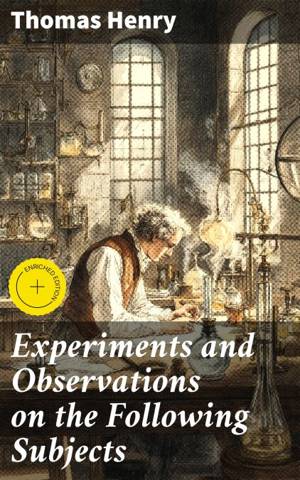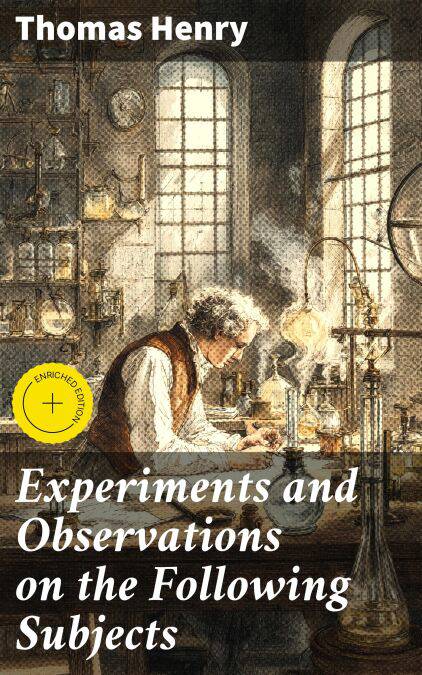
- Retrait en 2 heures
- Assortiment impressionnant
- Paiement sécurisé
- Toujours un magasin près de chez vous
- Retrait gratuit dans votre magasin Club
- 7.000.0000 titres dans notre catalogue
- Payer en toute sécurité
- Toujours un magasin près de chez vous
Experiments and Observations on the Following Subjects EBOOK
Enriched edition. Exploring Scientific Curiosity in the Enlightenment Era
Thomas Henry
Ebook | Anglais
0,49 €
Format
Description
In "Experiments and Observations on the Following Subjects," Thomas Henry presents a meticulous exploration of scientific investigation during the late 18th century, blending empirical observation with philosophical inquiry. This work serves as an early example of the experimental method, showcasing Henry's rigorous approach to natural philosophy. The text delves into various subjects, including the properties of gases and chemical reactions, reflecting the burgeoning curiosity about the natural world that characterized the Enlightenment. Henry's literary style is characterized by clarity and precision, emphasizing logical deductions drawn from systematic experiments that align with the scientific ethos of his time. Thomas Henry, a prominent figure in the field of chemistry, was deeply influenced by the intellectual currents of the Enlightenment, which championed reason and scientific inquiry. His empirical investigations were not merely academic pursuits; they arose from his dedication to expanding the knowledge framework of his era and enhancing the practical applications of science. Furthermore, his active involvement in public science outreach underscores his commitment to making scientific knowledge accessible, reflecting a broader pedagogical intent in his writing. This book is highly recommended for readers interested in the history of science, presenting a foundational text that elucidates the interplay between experimentation and observation in scientific advancement. Henry's insightful analyses and clear prose make it a significant addition to the canon of natural philosophy, appealing to both scholars and general readers seeking to understand the origins of modern scientific thought.
In this enriched edition, we have carefully created added value for your reading experience:
- Hand‐picked Memorable Quotes shine a spotlight on moments of literary brilliance.
- Interactive footnotes clarify unusual references, historical allusions, and archaic phrases for an effortless, more informed read.
In this enriched edition, we have carefully created added value for your reading experience:
- Hand‐picked Memorable Quotes shine a spotlight on moments of literary brilliance.
- Interactive footnotes clarify unusual references, historical allusions, and archaic phrases for an effortless, more informed read.
Spécifications
Parties prenantes
- Auteur(s) :
- Editeur:
Contenu
- Nombre de pages :
- 50
- Langue:
- Anglais
Caractéristiques
- EAN:
- 4064066184902
- Date de parution :
- 18-05-21
- Format:
- Ebook
- Protection digitale:
- Digital watermarking
- Format numérique:
- ePub

Seulement chez Librairie Club
Les avis
Nous publions uniquement les avis qui respectent les conditions requises. Consultez nos conditions pour les avis.





